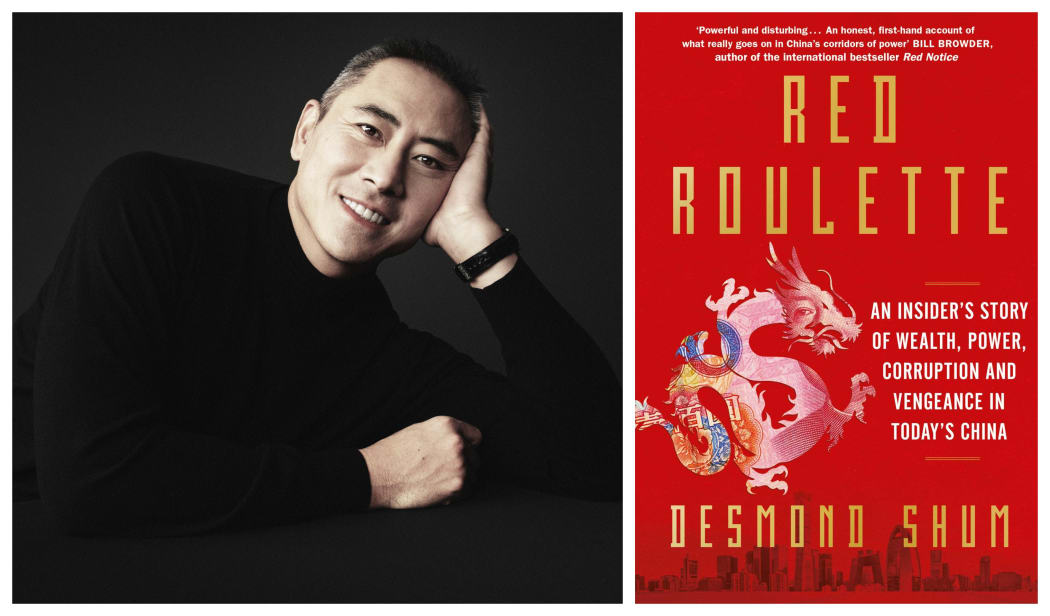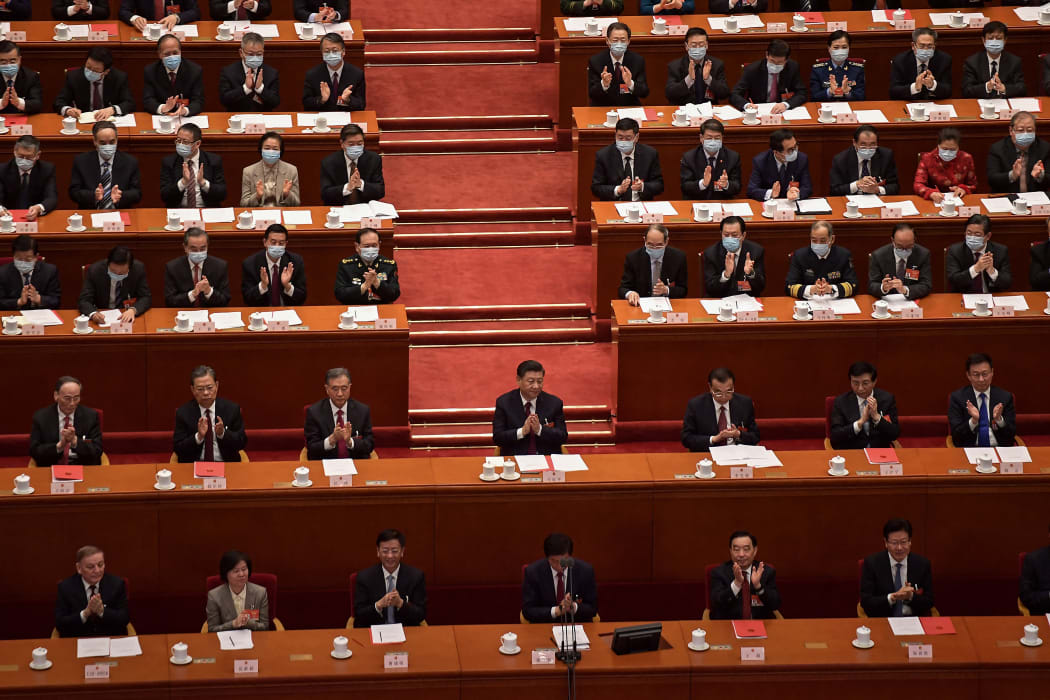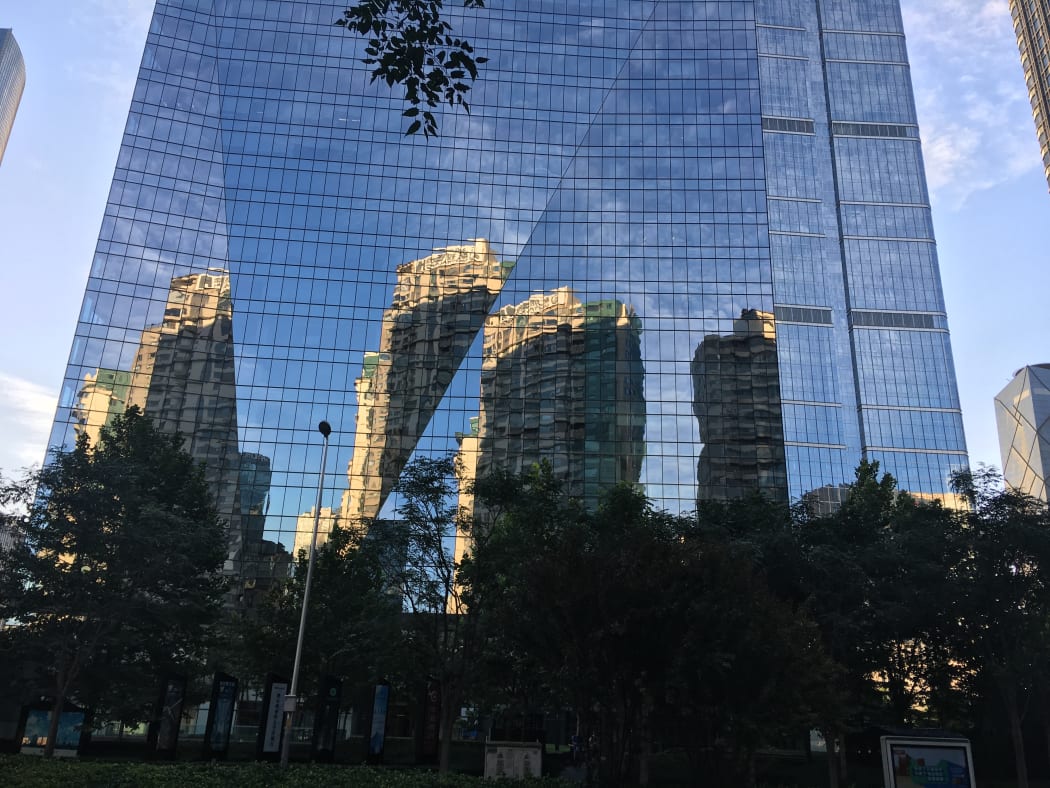Whitney Duan, purportedly China’s richest woman, disappeared on September 5 2017. She was last seen in her office at the heart of a multi-billion dollar complex she had helped build in Beijing’s financial district on the Liangmahe River, consisting of a Bulgari Hotel, a modern art museum and offices, all linked by architecturally-designed gardens and meant to create, in the words of its developers, a new model of culture and commerce.
Red Roulette subtitled An Insider’s story of wealth, power, corruption and vengeance in today’s China, is Whitney’s ex-husband’s account of what may have led to her kidnapping which he is certain was orchestrated by elements of the Chinese Communist Party. Daniel Shum, now living in Britain, wrote the book after not hearing from her for several years to explain to their son what life was like in China’s overheated “Gilded Age” in the early 2000s of huge economic gains and corruption, and what may have happened to Whitney.

Desmond Shum Photo: Jonty Davies
Shum was a Hong Kong-raised, US-educated entrepreneur looking for a chance to do something big. Whitney Duan was a smart go-getter who had learned how to make the right connections to make things happen in the city of Tianjin.
With China’s economy growing 10 percent a year or more, there was money to be made,
When the couple meet, it is not exactly a love match; Whitney did a SWOT business case (Strengths, Weaknesses, Opportunities and Threats) on a marriage. But it is a marriage of opportunities. Both see a chance to achieve big. He brings his western-trained business skills and stickability. She brings an extraordinary gift for networking.
Into this marriage steps the charismatic Auntie Zhang. But this auntie is Zhang Beili, the wife of Wen Jiabao, who rose to become the head of China’s government 2003-2013 and second most important man in the Chinese Communist Party.
Wen was a cautious “chief political eunuch” within the Party, usually pictured wearing a Mao suit and considered a man of the people. Shum argues he may not have known until too late the extent of his families’ enrichment. But if he did nothing to aid the accumulation of wealth (unlike some other Party leaders) he certainly did nothing to halt it.
Whatever Wen knew, Whitney’s immense drive met Auntie Zhang’s connections and the result was explosive wealth. They were able to parlay the hint of Wen’s favour into business opportunities. In Shum’s words, Auntie Zhang provided the air cover while he and Whitney were the infantry. First came a windfall of hundreds of millions of dollars when they invested in Ping An insurance company before it floated on the stockmarket and its shares took off. Then they undertook a massive redevelopment of Beijing international airport before the Summer Olympics. And finally the sprawling Genesis project in the heart of Beijing.
What keeps the book moving is its vignettes of crazy rich deal-making. Shum is alive to the madness of it all. He accompanies four billionaires on a wine tour to Europe; each insists on taking his own personal jet rather than riding with someone else. At times, power brokers would eat three dinners a night to seal deals over food.
Dirt Emperors
Shum is especially good on his dealings with what he calls “dirt emperors”, self-important local Party leaders. In a Party state, where the rule of the bureaucracy trumps the rule of law, the local chief bureaucrat can make or break a deal. Shum has enormous luck in his airport deal; the key “dirt emperor” who he is wining and dining has a heart attack but Shum manages to get him immediate treatment and the man is saved. From then on, every door opens for Shum.
Things begin to implode in the middle of the Genesis project. The couple’s marriage falls apart; she wants to take more business control, he feels overridden. Then the New York Times publishes its Pullitzer prize winning investigation into the wealth of Wen’s family. Wen is aghast. He prepares to retire, Auntie Zhang withdraws and Whitney takes the heat. Her instinct for networking falters. She knows she has to find a replacement for Wen, but the people she cultivates have a flaw; they are on the wrong side of Xi Jinping.

Photo: AFP
Whitney is, says Shum, a “woman of outsize talents in a patriarchal society, she’d played the roulette-like political environment of the New China with unparallelled skill, parlaying an alliance with the family of a political titan into almost unimaginable success. Until she didn’t.” When Xi takes power and unleashes an anti-corruption drive doubling as a wrecking ball against political opponents, her contacts fall one by one until she is solitary and exposed.
Shum writes his tale with verve and pace; the acknowledgements credit the highly regarded foreign correspondent John Pomfret as his “writing partner”. Best of all, you don’t need a knowledge of Chinese politics to understand the tale, though a glossary of names might have helped when the corruption arrests come thick and fast at the end. He writes sympathetically of Whitney, Wen and Auntie Zhang so they are never caricatures. Auntie Zhang, he believes, was more in love with the thrill of the deal than the riches she amassed.
The book also has at least one genuinely eye-opening moment. Shum tells the inside story of the Politburo meeting when the contender Xi Jinping moved against his rival Bo Xilai. He recounts the speaking order, some of the speeches and who supported which faction. This is a rare glimpse of a Politburo meeting in a country where meetings of the top echelon are highly secretive. Presumably it came from Wen, who was there, to Auntie Zhang to Whitney.
In the end, Shum becomes disillusioned by the newly rich red aristocracy he has worked with. He concludes that entrepreneurs like himself and Whitney were tolerated by the Party only as long as they were useful, but power resides with the Party, and still does.
After Whitney disappeared, Shum tried to find her. There were rumours but no word from his ex-wife. Friends passed on tidbits, including that she was dead.

Beijing in Summer. Photo: Supplied/ Jeremy Rees
Shum can not quite provide concrete details of who kidnapped Whitney or why. Perhaps she had embarrassed a Party sensitive to allegations its members had enriched themselves ahead of the goal of “common prosperity”. Maybe she was part of a corruption investigation among the political elite. Shum believes Whitney was held by the Party’s Central Commission for Discipline Inspection.
But the final reveal in the story falls outside the book and came as Red Roulette was on the printing press. Whitney reappeared.
After four years, she called Shum and their young son. She wouldn’t say what had happened. Shum told reporters he believes she was calling under duress. He says she told him not to attack the Party or the motherland. Whitney asked him not to go ahead, saying it might anger the Chinese government and security services.
He published. The dedication of the book is to Whitney but it is accompanied by a thousand-year old Chinese poem. It reads, Better to speak out and die than keep silent and live.
Red Roulette: An Insider’s story of wealth, power, corruption and vengeance in today’s China.
By Desmond Shum.

